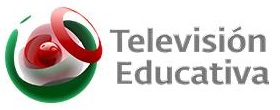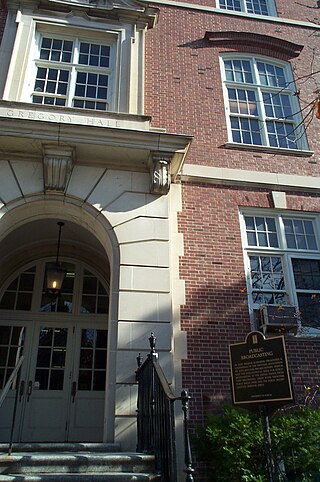Related Research Articles

The Corporation for Public Broadcasting (CPB) is an American publicly funded non-profit corporation, created in 1967 to promote and help support public broadcasting. The corporation's mission is to ensure universal access to non-commercial, high-quality content and telecommunications services. It does so by distributing more than 70 percent of its funding to more than 1,400 locally owned public radio and television stations.
Communications in Barbados refers to the telephony, internet, postal, radio, and television systems of Barbados. Barbados has long been an informational and communications centre in the Caribbean region. Electricity coverage throughout Barbados is good and reliable. Usage is high and provided by a service monopoly, Barbados Light & Power Company Ltd..
Public broadcasting involves radio, television, and other electronic media outlets whose primary mission is public service. Public broadcasters receive funding from diverse sources including license fees, individual contributions, public financing, and commercial financing, and avoid political interference or commercial influence.

National Educational Television (NET) was an American educational broadcast television network owned by the Ford Foundation and later co-owned by the Corporation for Public Broadcasting. It operated from May 16, 1954, to October 4, 1970, and was succeeded by the Public Broadcasting Service (PBS), which has memberships with many television stations that were formerly part of NET.

Georgia Public Broadcasting (GPB) is a state network of PBS member television stations and NPR member radio stations serving the U.S. state of Georgia. It is operated by the Georgia Public Telecommunications Commission, an agency of the Georgia state government which holds the licenses for most of the PBS and NPR member stations licensed in the state. The broadcast signals of the nine television stations and 19 radio stations cover almost all of the state, as well as parts of Alabama, Florida, North Carolina, South Carolina and Tennessee.
The National Association of Educational Broadcasters (NAEB) was a US organization of broadcasters with aims to share or coordinate educational programmes. It was founded as the Association of College and University Broadcasting Stations (ACUBS) in 1925 as a result of Fourth National Radio Conference, held by the U.S. Department of Commerce.
WSRE is a PBS member television station in Pensacola, Florida, United States, owned by Pensacola State College (PSC). The station's studios are located at the Kugelman Center for Telecommunications on the Pensacola State main campus, and its transmitter is located near Robertsdale, Alabama.
PBS Wisconsin is a network of non-commercial educational television stations operated primarily by the Wisconsin Educational Communications Board and the University of Wisconsin–Madison. It comprises all of the PBS member stations in the state outside of Milwaukee.
Arkansas PBS is a state network of PBS member television stations serving the U.S. state of Arkansas. It is operated by the Arkansas Educational Television Commission, a statutory non-cabinet agency of the Arkansas government operated through the Arkansas Department of Elementary and Secondary Education, which holds the licenses for all of the public television stations based in the state. The commission is managed by an independent board of university and education officials, and gubernatorial appointees representing each of Arkansas's four congressional districts. Along with offering television programs supplied by PBS and various independent distributors, the network produces public affairs, cultural and documentary programming as well as sports events sanctioned by the Arkansas Activities Association (AAA).

The Caribbean Broadcasting Corporation (CBC) is a public radio and television broadcaster, located in The Pine, St. Michael in Barbados. It was founded in 1963 as Radio Barbados. The CBC falls under the ministry and jurisdiction of the Prime Minister's Office.

Dirección General @prende.mx, formerly known as Dirección General de Televisión Educativa, is the producer of educational programs of the Secretariat of Public Education of Mexico with origins dating back to 1968. Which are broadcast on the Edusat, an educational television network. Edusat is an portmanteau of "education" and "satellite".

Education Channel TV4 formerly "Government Information Services Limited", "The National Carnival Commission of Trinidad and Tobago" (NCC4), "The Information Channel" (TIC) and "AVM Television", is a television station serving Trinidad and Tobago on Channels 4 & 16 with its studios located at TIC Building, Lady Young Road, Morvant, Trinidad and Tobago.
WEDQ is a secondary PBS member television station licensed to Tampa, Florida, United States, serving the Tampa Bay area. Owned by Florida West Coast Public Broadcasting, it is a sister station to primary PBS member WEDU. The two stations share studios on North Boulevard in Tampa and transmitter facilities in Riverview, Florida.

The mass media in Ethiopia consist of radio, television and the Internet, which remain under the control of the Ethiopian government, as well as private newspapers and magazines. Ten radio broadcast stations, eight AM and two shortwave, are licensed to operate in Ethiopia. The major radio broadcasting stations include Radio Fana a private station, Radio Voice of One Free Ethiopia, and the Voice of the Revolution of Tigray. The only terrestrial (broadcast) television networks are government owned and include EBC and other regional stations. In keeping with government policy, radio broadcasts occur in a variety of languages including Amharic, Afaan Oromo, Tigrigna, and more. There are also many video sharing websites which are a popular way of getting information as well as entertainment in Ethiopia.

Education in Barbados is based primarily on the British model.

China Education Television (CETV) is an educational TV station in the People's Republic of China. Its first broadcast was on October 1, 1986. It functions to provide Chinese people with educational programs, similar to PBS in the United States or NHK Educational TV in Japan.

The Public Broadcasting Service (PBS) is an American public broadcaster and non-commercial, free-to-air television network based in Crystal City, Virginia. PBS is a publicly funded nonprofit organization and the most prominent provider of educational programs to public television stations in the United States, distributing shows such as Frontline, Nova, PBS News Hour, Masterpiece, Sesame Street, and This Old House.
Julian Ernest Chetvynde Rogers MBE is a Caribbean broadcaster and journalist. He has worked as broadcast manager, TV and radio host and producer, publisher, trainer, lecturer, media consultant and public relations professional. Involved since the 1970s with the building of national radio stations notably in Barbados, St Kitts & Nevis, and Antigua & Barbuda, and part of "the original team set up to 'revolutionise' the media industry in Trinidad & Tobago with the rebranding of the Trinidad and Tobago Television Company (TTT) into CNMG", he has been called "the Caribbean man" and has established a reputation as one of the region's most respected media practitioners. His characteristic style as a broadcaster is to conduct biting interviews; one commentator refers to "the persistent journalistic exploits of a resurgent, sharp-witted and emphatic Julian Rogers".
The Barbados Community College is a tertiary institution located on Eyrie Howells' Road, Saint Michael, Barbados.

In the United States, other than a few direct services, public broadcasting is almost entirely decentralized and is not operated by the government, but does receive some government support.
References
- ↑ A, P (2008-10-23). "PM: No more stations". Nation Newspaper . Archived from the original on 2011-05-26. Retrieved 2008-11-07.
- ↑ "Barbados Ministry of Education Launches Public Broadcast Service". Caribbean Press Releases. 2008-10-23. Retrieved 2008-11-07.
- ↑ "Harmonisation of technology in teaching still needed". Barbados Advocate Newspaper . 2008-10-23. Archived from the original on 2012-02-15.